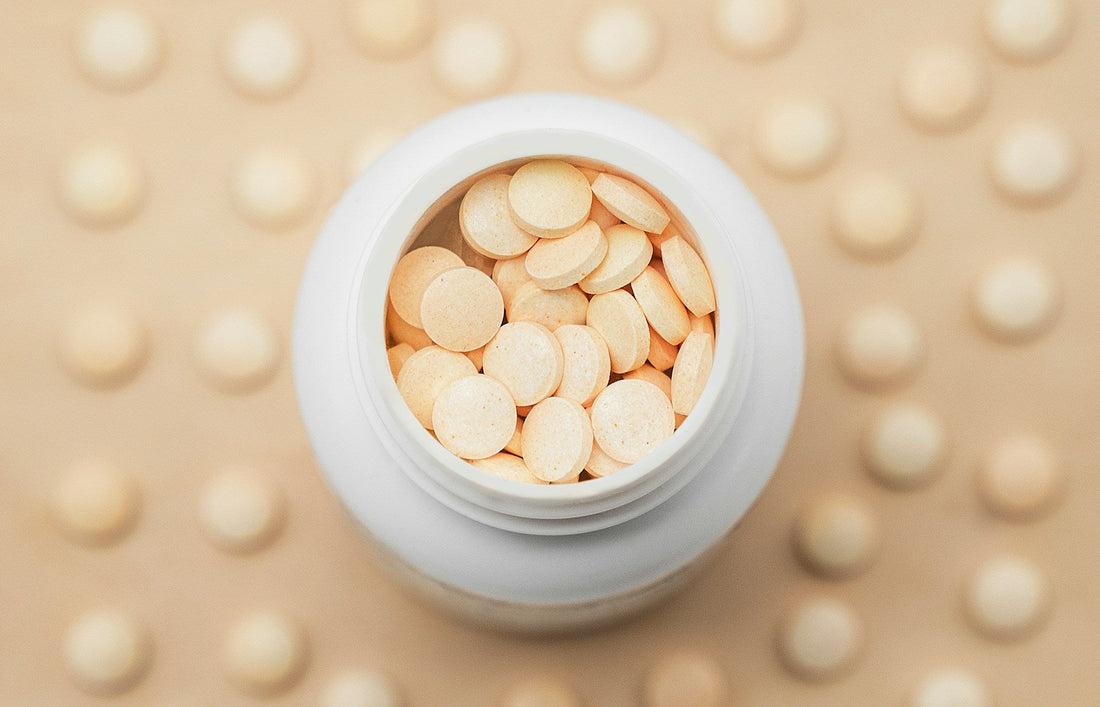
Does Fiber Shrink Hemorrhoids? Understanding the Impact on Symptoms and Relief
Share
If you’re seeking relief from the discomfort of hemorrhoids, you might wonder about the role of dietary fiber in their management. Incorporating fiber into your diet can help alleviate symptoms and may contribute to shrinking hemorrhoids by softening stools and reducing straining during bowel movements. A high-fiber diet, rich in fruits, vegetables, and whole grains, not only improves digestion but also aids in preventing the recurrence of hemorrhoids.
Understanding the impact of fiber on your digestive health is crucial. Foods high in dietary fiber facilitate regular bowel movements, which is essential for minimizing irritation and pressure on the anal region. Alongside a fiber-rich diet, consider supplements like Hem Healer, a natural blend of botanical herbs designed to address hemorrhoid symptoms. This supplement can help reduce pain, swelling, and bleeding, offering relief for both men and women.
Taking control of your diet by focusing on fiber can significantly improve your experience if you’re dealing with hemorrhoids. The right combination of dietary changes and natural supplements like Hem Healer can pave the way for comfort and healing.
Understanding Hemorrhoids
Hemorrhoids are swollen veins in the lower rectum and anus. They can cause discomfort and various symptoms that can significantly affect your quality of life. Knowledge of their causes, symptoms, and types is essential for effective management.
Causes of Hemorrhoids
Hemorrhoids can develop due to several factors. Increased pressure on the veins in the rectal area is a primary cause. This can result from chronic constipation or diarrhea, which places strain during bowel movements. Other contributing factors include pregnancy, obesity, and prolonged sitting, especially on the toilet.
Age also plays a role; as you get older, the tissues that support the veins in the rectum may weaken. Poor dietary habits lacking fiber may lead to harder stools, increasing the chance of hemorrhoids.
Symptoms of Hemorrhoids
Symptoms can vary based on the type and severity of hemorrhoids. Common signs include:
- Bleeding during bowel movements, often noticed on toilet paper or in the stool.
- Itching or irritation around the anus.
- Rectal pain or discomfort, especially when sitting.
- Swelling or a prolapse, where hemorrhoids protrude from the anus.
These symptoms can impact daily activities and may lead to increased distress. If these symptoms persist, consulting a healthcare provider is crucial.
Types of Hemorrhoids
There are two primary types of hemorrhoids: internal and external.
-
Internal hemorrhoids occur inside the rectum and are usually painless, but they can cause bleeding. In some cases, they may prolapse, becoming visible outside the anus.
-
External hemorrhoids develop under the skin around the anus. They might cause discomfort, pain, or itching and can result in a thrombus, which is a painful blood clot.
Managing hemorrhoids may involve lifestyle changes, including a high-fiber diet to alleviate symptoms. Consider using Hem Healer, a 100% natural blend of botanical herbs, designed to reduce pain, swelling, and bleeding. This supplement can be effective for both men and women seeking relief.
The Role of Fiber in Hemorrhoid Management
Fiber plays a crucial role in managing and preventing hemorrhoids by facilitating smoother bowel movements and reducing strain. Understanding the difference between soluble and insoluble fiber, as well as knowing how to increase your fiber intake, can significantly impact your comfort and health.
Soluble Versus Insoluble Fiber
Soluble fiber dissolves in water, forming a gel-like substance that can soften stool. It’s found in foods like oatmeal, fruits (such as berries and apples), and beans. This type of fiber can help regulate bowel movements and improve digestion.
Insoluble fiber does not dissolve in water and adds bulk to the stool, promoting regularity. Good sources include whole grains, vegetables, and nuts. This fiber type helps prevent constipation, a major contributor to hemorrhoid flare-ups.
Incorporating both types of fiber into your diet is essential for effective hemorrhoid management. Fiber supplements, such as those offered by Hem Healer, can provide an additional boost for those who struggle to meet their daily intake.
Increasing Fiber Intake
To effectively increase fiber intake, consider incorporating high-fiber foods into your meals. Start your day with high-fiber cereals or oatmeal. Snack on nuts or berries rather than sugary treats.
Include plenty of vegetables in your dishes, aiming for a variety of colors and types. Legumes, such as lentils and beans, are excellent choices for both fiber and protein. Whole grains like brown rice and quinoa also contribute valuable fiber.
For those who find it challenging to consume enough fiber through food alone, fiber supplements can be an effective solution. They help in alleviating the pain and discomfort associated with hemorrhoids. Hem Healer offers a natural blend of botanical herbs, specifically designed to soothe symptoms and promote overall digestive health.
Dietary Recommendations for Hemorrhoid Prevention and Relief
Maintaining a proper diet is crucial for both the prevention and relief of hemorrhoids. Incorporating the right foods can promote bowel regularity and reduce straining, while avoiding certain items can help minimize discomfort and irritation.
Foods to Include
A high-fiber diet can significantly help in managing hemorrhoids. Aim to include a variety of fiber-rich foods such as:
- Beans and legumes: Great sources of protein and fiber, navy beans and black beans can help ease bowel movements.
- Fruits: Apples, pears, and prunes are excellent choices. They provide fiber and hydration, which are vital for softening stools.
- Vegetables: Incorporate artichokes, tomatoes, and sweet potatoes for their fiber content, aiding digestion.
- Whole grains: Opt for barley, corn, and shredded wheat instead of processed grains.
- Seeds: Flaxseeds and chia seeds are beneficial as they add bulk to your diet.
Drinking plenty of water alongside these foods can further promote digestive health. Consider including Hem Healer, a natural supplement that supports your efforts in relieving hemorrhoid symptoms effectively.
Foods to Avoid
Certain foods can exacerbate hemorrhoid symptoms and should be minimized or avoided. Here are some key items to watch out for:
- Processed foods: Foods high in refined sugars and fats, such as pastries and snacks, can lead to constipation.
- White bread and pasta: These items lack the fiber necessary for digestive health.
- Dairy products: Excessive dairy may lead to constipation for some individuals.
- Spicy foods: They can irritate the digestive tract and exacerbate symptoms.
Limiting these foods can help reduce strain and make it easier to maintain regular bowel movements. Remember, opting for a balanced diet alongside the use of Hem Healer can help improve your overall comfort.
Lifestyle and Home Remedies
Incorporating effective home treatments and making mindful lifestyle choices can significantly alleviate hemorrhoid symptoms. Focusing on hydration, dietary adjustments, and specific exercises can lead to improved bowel health.
Effective Home Treatments
One of the most beneficial home treatments is a sitz bath. This involves soaking your lower body in warm water for about 15-20 minutes. It can help soothe itching and pain while promoting blood flow to the affected area. For even more relief, consider alternating with a cold compress to reduce swelling.
Staying hydrated is crucial in preventing hemorrhoids. Drink plenty of water throughout the day to keep stools soft and easy to pass. Incorporating high-fiber foods, such as vegetables, fruits, and whole grains, can also improve bowel movements.
Another option is using Hem Healer supplements. This 100% natural blend of botanical herbs is designed to effectively reduce the pain, swelling, and bleeding associated with hemorrhoids, making it a great choice for both men and women.
Exercises and Habits
Regular exercise can help maintain healthy bowel function and prevent constipation. Aim for at least 30 minutes of moderate activity most days. Walking, swimming, or even yoga can improve circulation and digestive health.
Developing healthy bowel habits is equally important. Avoid straining during bowel movements, as it can exacerbate hemorrhoid symptoms. Set aside time for regular bathroom visits, and don’t ignore the urge to go.
Practicing good hygiene is also vital. After bowel movements, gently clean the area to prevent irritation. Remember, small adjustments in your routine can lead to significant relief from hemorrhoid discomfort.
Medical Treatment Options for Hemorrhoids
When experiencing hemorrhoids, various medical treatments can help alleviate symptoms and address the condition. These options range from minimally invasive procedures to topical treatments, allowing you to choose what best suits your situation.
Minimally Invasive Procedures
Minimally invasive procedures are effective for treating hemorrhoids with minimal discomfort. Rubber band ligation involves placing a small band around the base of the hemorrhoid, cutting off its blood supply, and causing it to shrink. This method is quick and typically performed in a doctor's office.
Sclerotherapy involves injecting a chemical solution into the hemorrhoid, which shrinks and eliminates it over time. Another option is infrared photocoagulation, where infrared light is used to reduce hemorrhoid size by damaging its tissue. These procedures are generally low-risk and lead to little downtime for you.
Surgical Interventions
In more severe cases, surgical options may be necessary. Hemorrhoidectomy is the surgical removal of hemorrhoids and is often recommended for large or persistent cases. This procedure effectively resolves the problem but usually requires a short recovery period.
Hemorrhoid stapling, or stapled hemorrhoidopexy, is a less invasive alternative. It focuses on repositioning and stapling the hemorrhoid tissue instead of complete removal. This method can reduce pain and expedite recovery. Discuss these options with your healthcare provider to find the best approach for your needs.
Topical Treatments and Pain Relief
Topical treatments can provide immediate relief from symptoms. Creams containing hydrocortisone help reduce inflammation and itching. Products with witch hazel can also soothe discomfort and decrease swelling.
Over-the-counter options like Preparation H are widely used for itch relief and pain reduction. Additionally, incorporating fiber supplements like psyllium husk into your diet can soften stools and ease bowel movements, supporting overall treatment for hemorrhoids. To supplement your recovery, consider Hem Healer, a natural blend designed to reduce pain and swelling for both men and women, enhancing your overall treatment plan.

